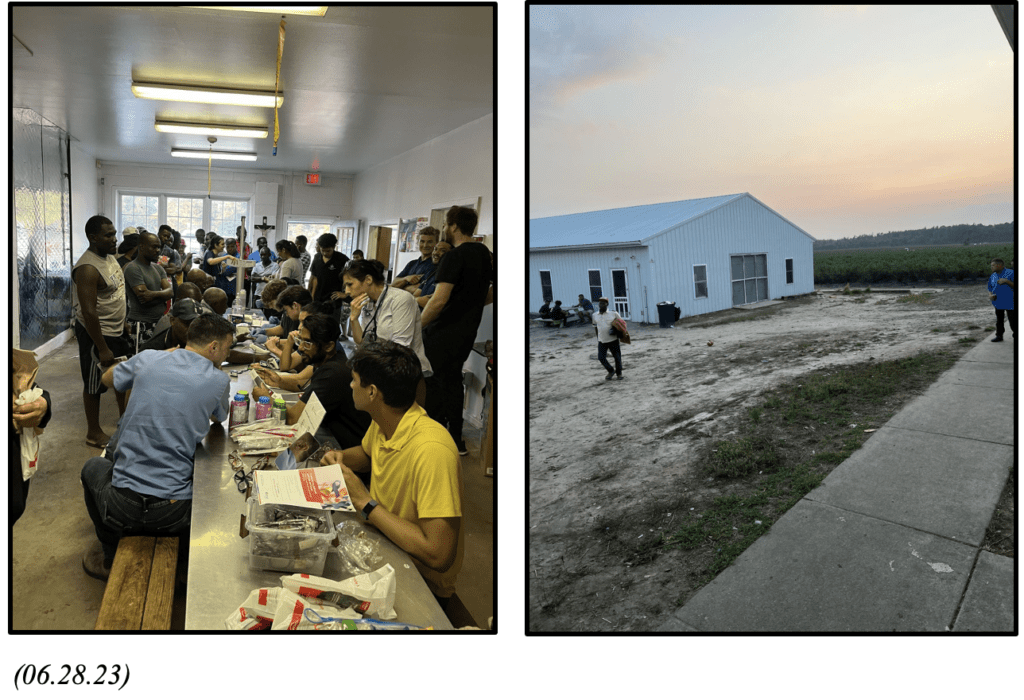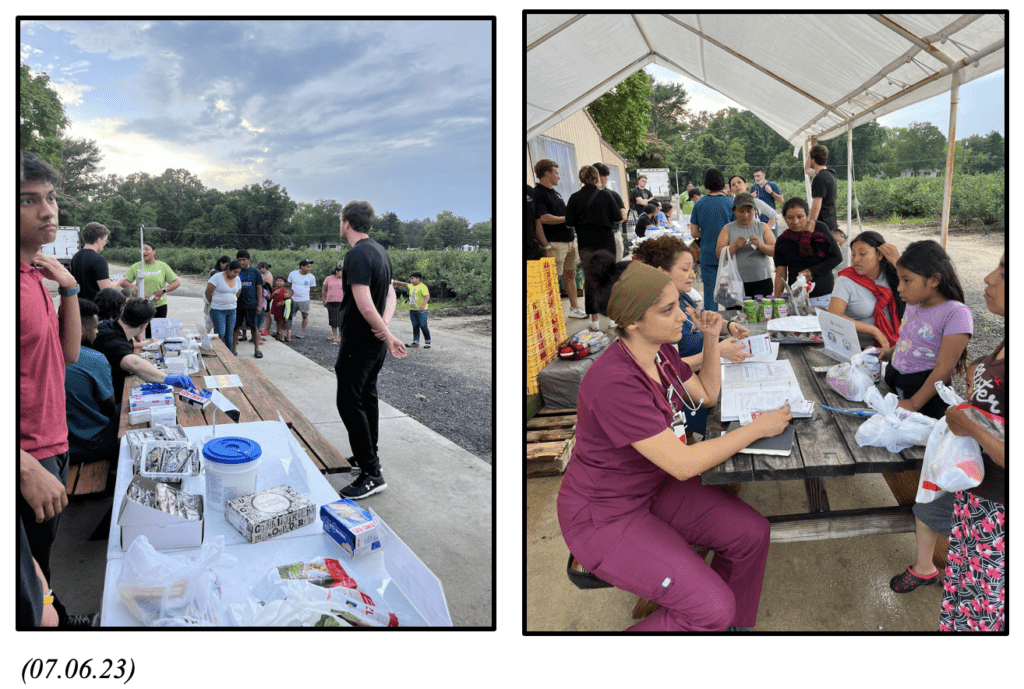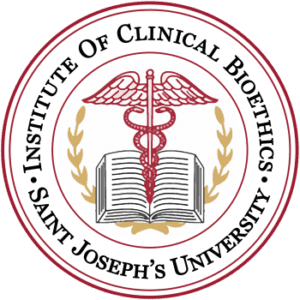Andren Chen, Benjamin Gabrieliants, Caroline Curtin, Adamya Aggarwal, and Joseph Kelly

The Rural/Mobile Health Promoter was designed in collaboration with the Consulate of Mexico in Philadelphia to provide rural Hispanic communities of New Jersey, Pennsylvania, and Delaware with access to basic primary care and education, promoting their health and wellbeing. The Promoter provides medical screenings, dental screenings, eye screenings, cervical cancer and mammogram screenings, as well as legal and financial screenings. The Program also provides prenatal vitamins, children’s vitamins, and Pack N’ Plays. While the Institute of Clinical Bioethics’ Health Promoter Model is typically focused on preventative care, migrant workers experience more health problems than their urban counterparts due to poor living and extreme working conditions, making our available treatments and resources all the more vital. Specifically, pesticide exposure causes health issues such as skin irritation, respiratory illness, and subsequent infections. This Program is a first step at bridging the gap to adequate healthcare for this vulnerable population and others in similar situations.
Student Volunteer Reflection
This summer, I had the opportunity to help coordinate the Rural Health Promoter. This idea was first brought to me by Fr. Clark, who is the director of the Institute of Clinical Bioethics at Saint Joseph’s University. We hosted our first event in the blueberry field on June 28, 2023. When we first arrived at the site, I was shocked by the living conditions of the migrant workers. The heat and the humidity of the summer evening made the experience even more eye opening as I imagined the feeling of working through this weather. When we were all set up for the event and as people began to line up for screenings, I saw several mothers tie their babies to their back with scarves. I personally never seen a mother do that before and at the very moment it brought a realization to me that I was no longer in a place of want but rather in a place of need. I was placed at the dental station, which provides toothbrushes, toothpaste, and floss. Everytime I gave a dental kit away I could see the joy come from the children’s eyes and the gratefulness from the adult’s smiles. On July 06, 2023 we hosted another promoter at a different blueberry field in New Jersey. At this event we saw fewer people, but the place and the people still amazed me. These events brought awareness to the healthcare needed for migrant workers, changing my perspective on the matter. Serving these people made me truly appreciate their dedication and work ethic to provide for a nation that underserves them.
Student Volunteer Reflection
On June 28 and July 5 of 2023, I had the pleasure of serving two groups of underserved migrant blueberry farm workers alongside a group of 6 other students and a group of medical students and residents. While we prepared for the first event of this nature, we expected at most 20 people of Haitian and Hispanic descent. However, this number was blown out of the water when our group saw over 85 patients. Seeing the smiling faces of the children and their parents as they were being treated with various resources warmed my heart and allowed me to appreciate the optimism of these underprivileged members of our community. The second event on July 5, however, brought upon me a different feeling, a feeling of admiration. This blueberry farm was home to a mere 27 people, all of which were expected to service acres and acres of land. My admiration stemmed from the fact that these families had to wake up at 3 in the morning and work until 7 at night every single day for little to no appreciation by those that they serve. The amount of mental fortitude that every single one of these migrant workers have shown completely overshadows the amount of work that they put in on a day-to-day basis. God bless them.
Student Volunteer Reflection
Upon arriving at the event, to our surprise, the individuals were not speaking Spanish like we were told they would, instead they were speaking Creole. My fellow coordinators and I looked at each other with the same look of nervousness, knowing that we only brought Spanish translators but there was no time to wait. We spun the old cafeteria tables in a line and laid out our stations as the line wrapped around the room.
During the event, I assisted one older Haitian gentleman through the stations without any verbal communication due to our inability to understand one another’s languages. After the last station, he suddenly spoke a phrase out in Creole, I stood confused, then he repeated it again, “Lespwa fè viv.” As I looked around for the interpreter, a young man behind me spoke up saying “‘Lespwa fè viv’ means that hope makes one live”.
I left the farm not only with a few words added to my Creole vocabulary, but also a new perspective on how kindness and compassion are the ultimate translators, able to traverse any racial, ethnic, or language barrier. This experience has taught me to always push myself out of my comfort zone and offer a helping hand to others where these barriers exist. At the end of the day, medicine is a patient-centered profession and I feel that my experiences have prepared me to personably interact with a diverse range of individuals. I hope to expand my passion for learning from individuals with backgrounds that differ from my own through future service opportunities such as this one.



